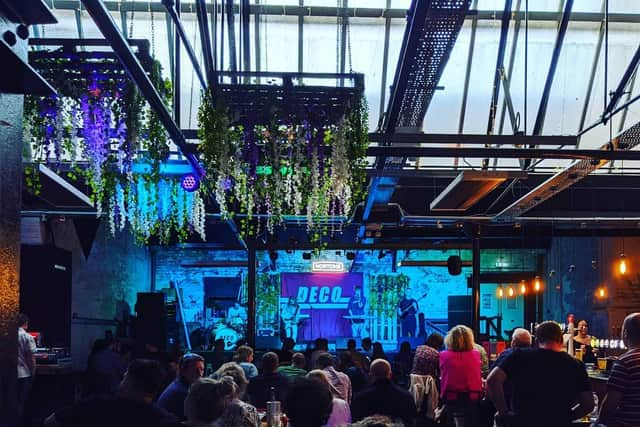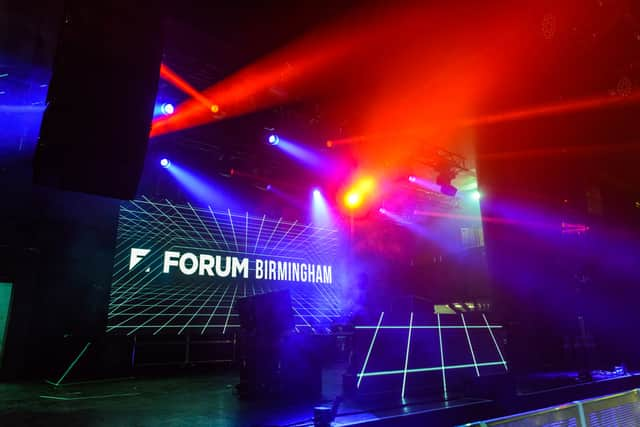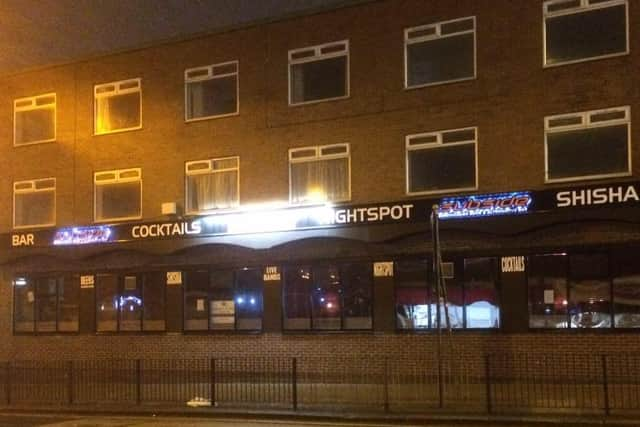Birmingham’s live music industry and how it’s bouncing back from the pandemic
This article contains affiliate links. We may earn a small commission on items purchased through this article, but that does not affect our editorial judgement.


Every industry in the country has been affected by the coronavirus pandemic and the subsequent lockdowns.
But the live music industry in particular, has taken a heavy hit over the last 18 months, with uncertainty widespread among those who relied on our weekend entertainment for a regular income.
Advertisement
Hide AdAdvertisement
Hide AdBirmingham has consistently had an influential music scene - from Black Sabbath and UB40, Mike Skinner to JayKae, Brummies are proud of the city’s musical heritage, and live music has also been vital for the economy in recent years.
According to a report by Music by Numbers, in 2019, the West Midlands’ music industries contributed £252 million to the national economy, supporting 2,400 jobs, and an October 2019 report by Birmingham Live Music Project into the live music sector revealed that pre-lockdown there were 197 music venues in the city with a capacity of up to 98,000 on any given night.
Many people in our city rely on live music for their livelihoods.


How the pandemic affected Birmingham’s live music scene
Lyle Bignon, the founder of Birmingham Music Coalition - a music industry body for Birmingham - said many smaller venues were unable to reopen after the first lockdown due to the restrictions which were in place.
Advertisement
Hide AdAdvertisement
Hide AdHe has spent the last 18 months lobbying for investment and campaigning on behalf of particular venues in Birmingham.
He said: “Generally, the smaller the venue the more difficulty they had when they were allowed to reopen because they were operating at a reduced capacity and struggling to make ends meet.
“The rule of six and the reduced capacity meant smaller grassroots venues would be working on a 25% capacity - and there’s no venue really in the UK - particularly when you look at soaring rents, licensing issues and overheads - that can operate on a 25% capacity, so a lot of venues chose to stay closed.
“I’ve spoken to live sound engineers who have had to take on work with Ocado and working in Amazon warehouses in order to make ends meet and pay their mortgage.”
Advertisement
Hide AdAdvertisement
Hide AdOne sound engineer, Ian Forster, was left in limbo when the pandemic hit in March 2020.
Ian, an experienced Birmingham-based venue and touring sound engineer, has been working in the industry full-time for 13 years.
“I didn’t know if I was going to make rent for the month after lockdown,” he said.
“My partner is disabled as well, so she didn’t have any income and it was an extremely stressful time, so from that point on it was Universal Credit and the self-employment grants which kind of helped us to cling on.
Advertisement
Hide AdAdvertisement
Hide Ad“Luckily for me, one of the venues that I look after has an outdoor stage so when things started to open up a bit for the first time we did manage to put on a few socially distanced gigs, but it was nothing compared to my income before, but it certainly helped.”


How were Birmingham’s live music venues impacted by Covid-19
One of those venues was the Subside rock bar in Digbeth, which only reopened its doors six months ago.
The bar’s manager Ben Mortiboy, said:“Even when bars were allowed to reopen with table service and the restrictions, we weren’t able to have live music and it just didn’t feel like the right time.
“Bands stopped playing altogether and discontinued because it had been such a long-time to not being able to play music for them.
Advertisement
Hide AdAdvertisement
Hide Ad“Many people who also worked in the hospitality industry had to get 9-5 jobs or shelf-stacking jobs.
“We were on furlough for a good period but some staff were made redundant on the promise that when we did reopen they would get those jobs back, and some went off and some stuck with us, but we stayed closed for the entirety of that period because we are a rock bar and it’s all about live music.”


Live music is returning to life in Birmingham
Ian is now back at work after a difficult 18 months and he is enjoying the return of live music, which he said has been emphatic in the city since restrictions were lifted, although there are still lingering problems as a result of the pandemic.
“It was busy over the summer because we’d had a huge number of festivals and everyone was taking advantage of that having been stuck inside for a year,” he said.
Advertisement
Hide AdAdvertisement
Hide Ad“I’d had job offers for tour management and touring sounds in the last weeks of August which I simply couldn’t do because of the stacks of jobs i’d got which had come in, but many sound engineers have left the industry.
“Since we reopened and the restrictions were lifted live music has been pretty crazy but that’s also been quite difficult because some members of the industry haven’t returned because they’ve had the guarantee of work, so there’s not as many of us out here anymore.”
Despite the obvious challenges, Ian never considered leaving the industry.
He said: “For me personally I couldn’t go back into other employment - I’ve been doing this for so long I’m too regimented because I’m very use to be able to work on my own.
Advertisement
Hide AdAdvertisement
Hide Ad“I always had a plan during lockdown to just hunker down and make ends meet as best as I could and I would only go out there and get another job if I absolutely had to - fortunately I didn’t have to have to but there were times when it was close and I was scrolling through job websites.”


Billy Chauhan is the owner of Global Venues which manages Forum Birmingham in the city centre.
The newly-renovated venue - previously known as The Ballroom, the Humming Bird and the Carling Academy - reopened as Forum Birmingham in May.
Billy believes there is still some way to go before live music returns to how it was pre-Covid.
Advertisement
Hide AdAdvertisement
Hide Ad“We opened in May 2021 with social distancing implemented, so up until September we were hosting sit down events up until our launch on September 3 where Mike Skinner played.”
“I think live music will get back to how it was but we’re not quite there yet,” he said.
“At the events we’ve put on you can see there’s been about a 30% drop in attendance compared to how it was before.
“I was a sound engineer in my previous life and I know live music is very important to the community and as an independent venue we want to give something back, and I have good faith in the British public, and although I don’t think it will be quite like it was before, I do think it will return to a good standard.”


Packed out venues
Advertisement
Hide AdAdvertisement
Hide AdBen said the appetite for live music in the city after an 18-month absence has been very high at Subside.
“Our first gig was a couple of months back with a band called Broken Jaw which we did for the charity Mind, and the band played for a low amount because they just wanted to do a show and there was a five-band bill - the whole place was packed.
“As far as we were concerned the restrictions were lifted so we thought ‘let’s go for gold’ and the gig was great - you could tell that people had missed the atmosphere.
“There’s nothing I love more working in this industry and seeing people excited when they walk into a bar and get to a venue, even if it’s not a band then know well.”
Advertisement
Hide AdAdvertisement
Hide AdBen knows as well as anyone how important live music is for the city.
“Birmingham is the home of metal with Black Sabbath, and Duran Duran played a sold-out show at the Institute a few weeks ago. The industry is so important because we have so much history and heritage.”
A message from the editor:
Thank you for reading. BirminghamWorld is Birmingham’s latest news website, championing everything that is great about our city - reporting on news, lifestyle and sport. We want to start a community among our readers, so please follow us on Facebook,Twitter and Instagram, and keep the conversation going.
Comment Guidelines
National World encourages reader discussion on our stories. User feedback, insights and back-and-forth exchanges add a rich layer of context to reporting. Please review our Community Guidelines before commenting.
